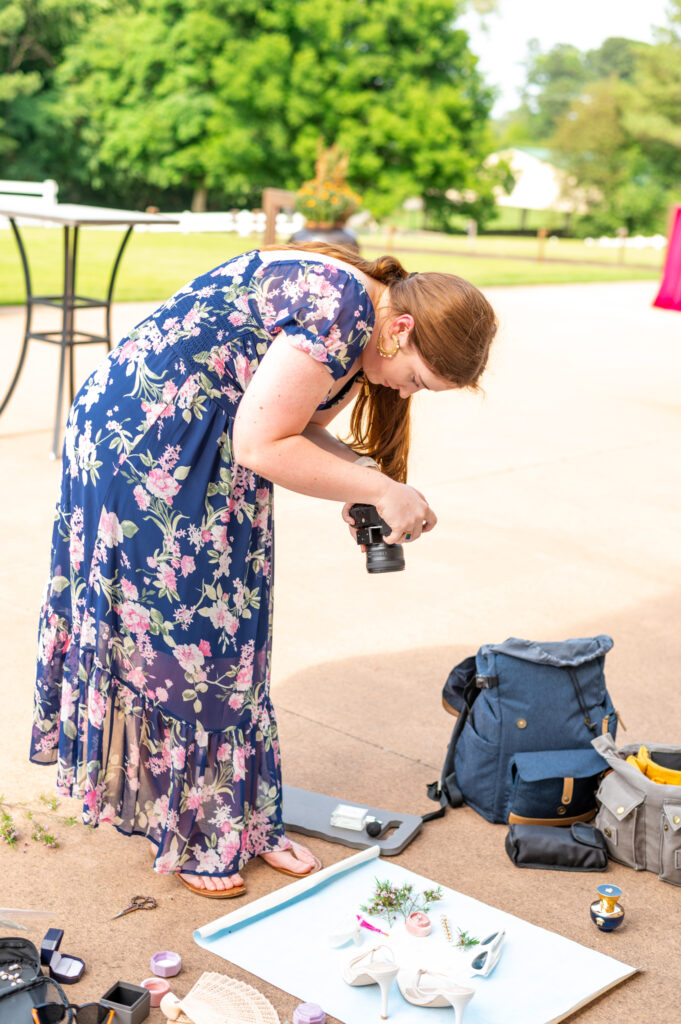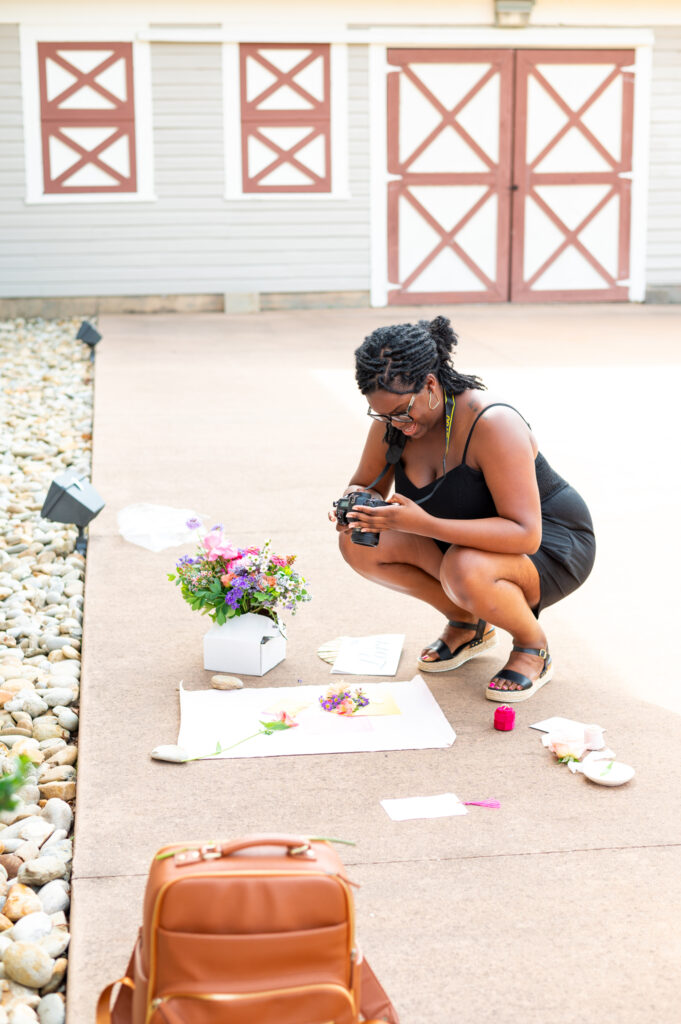Share this post
AUTHOR:
Coaching vs. Courses: Which Will Actually Move the Needle in Your Business?
August 26, 2025

It’s a familiar crossroads for photographers: You know you want real growth in your photography business, but with so many education paths; coaching, courses, workshops, which route will actually get you to your goals? The choice can feel overwhelming, especially as the quest for growth demands not just gaining knowledge but also actionable steps, mindset shifts, and business evolution.
Whether you’re an emerging shooter chasing your first $10k month or a seasoned pro looking to break through a stubborn plateau, understanding the differences between coaching and courses is crucial for unlocking the next level. This blog unpacks both options so you can chart the clearest path to the growth you crave; no wasting time, energy, or money on what won’t work for you.
What We’ll Cover
- Personalization in Growth: Coaching vs. Courses
- Accountability and Real-Time Feedback
- Course Flexibility vs. Coaching Structure
- Breaking Through Creative Blocks
- Networking and Community Opportunities
- Practical Application for Business Growth
- Cost vs. ROI in Coaching and Courses
- Long-Term Growth Mindset Development
- Adaptability to Industry Trends
- Deciding What’s Best for YOUR Growth

Personalization in Growth: Coaching vs. Courses
Choosing the right learning path starts with understanding how personalized you need your journey to be. Some photographers thrive when they have a guide who knows their exact struggles and can craft strategies tailored just for them. Others may prefer to absorb information independently and adapt it themselves. Coaching and courses each offer growth, but they take you there in very different ways. Let’s break down how these formats work in real life.
Coaching Tailors the Growth Journey
Coaching for photographers delivers growth strategies uniquely crafted to your needs. Unlike one-size-fits-all lessons, coaches can analyze your business, understand your specific obstacles, and help you design a roadmap that leads to genuine growth. This is especially powerful when your challenges are nuanced, like attracting higher-paying clients, scaling without losing quality, or managing work-life balance. With a coach, you get both the plan and the accountability to actually follow it.
Courses Deliver Systematic Knowledge for Growth
Courses, especially high-quality ones, offer a structured foundation for growth by leading you through step-by-step material. They’re excellent for covering core business principles, technical skills, or niche topics you can revisit at any time. However, they often lack the nuance and deep customization that a personalized coaching experience brings to your business. The value of a course depends heavily on your discipline to apply what you’ve learned.
Accountability and Real-Time Feedback
One of the biggest differentiators between coaching and courses is how feedback is delivered. Real-time input can transform your learning speed and accuracy, while delayed or no feedback requires you to troubleshoot on your own. This factor alone can mean the difference between quick breakthroughs and slow, frustrating trial-and-error. Let’s look at how both options stack up here.
Growth Accelerates with Coaching Accountability
A huge benefit of coaching is built-in accountability. Regular check-ins, honest feedback, and the necessity to report progress propel you to implement what you’re learning, resulting in more consistent growth. A good coach won’t just cheer you on; they’ll challenge you when you’re playing small and push you toward bolder, more strategic actions. Take a look at our blog What Really Happens in a Photography Coaching Program? to give you more information on what to expect during a coaching program.
Course-Based Growth Relies on Self-Motivation
Courses provide valuable information, but the onus of implementation falls on you. Without a coach or mentor to check in, it’s easy to procrastinate or avoid uncomfortable but necessary actions. For highly self-driven learners, this independence can be empowering, but for many, it’s a recipe for stalled progress.
Course Flexibility vs. Coaching Structure
Time is a finite resource for photographers, so the pace of learning matters. Some creatives need freedom to study when inspiration strikes, while others excel when someone keeps them on a consistent schedule. Understanding your work habits is key to choosing the right format.
Courses Offer Growth at Your Own Pace
The major benefit of courses is flexibility. You can fit your learning around a busy shooting schedule, revisit modules as you need, and take control of your growth, provided you have the discipline to keep progressing. This makes courses a great choice for unpredictable schedules or for those who prefer solo learning.
Coaching Brings Structured Growth Interventions
Coaching, by design, sets growth milestones and structured action plans. This structure is especially powerful for photographers who thrive on deadlines and external guidance to maintain momentum. The built-in structure means less decision fatigue and a clearer path forward.

Breaking Through Creative Blocks
Creative plateaus happen to every photographer, no matter their skill level. The question is how quickly you can break free from them. The support, tools, and strategies you use to reignite creativity will depend on the type of learning path you choose.
Coaching Unlocks Creative Growth
Stuck in a rut? A coach rapidly diagnoses creative plateaus, offering thought-provoking exercises and fresh perspectives that ignite new growth in your artistry and client experience. They can challenge you to explore different genres, perspectives, or even unconventional techniques that might not have crossed your mind.
Courses Build Technical Growth Foundations
Courses, meanwhile, lay the groundwork for creative growth by teaching you new skills and techniques. For many, this boosts confidence and inspires new ideas, but true creative breakthroughs often require the interactive problem-solving that only coaching can offer.
Networking and Community Opportunities
Growth in business isn’t just about mastering technical skills or learning new strategies, it’s also about the relationships you nurture along the way. The people you connect with can influence your confidence, creativity, and even the opportunities that come your way. Both coaching and courses can offer a sense of community, but the quality and depth of those connections can vary greatly. In a coaching program, you’re often part of a smaller, more engaged group where your wins are celebrated, your challenges are understood, and your questions are addressed in real time. Courses, on the other hand, may give you access to forums or peer groups, but the interaction is typically more self-directed and less personal. The difference often comes down to how much direct feedback, encouragement, and accountability you want as you grow.
Coaching Connects You for Growth
Many coaching programs include group calls or masterminds, putting you in direct contact with like-minded photographers. This network accelerates growth through collaborative energy, peer inspiration, and honest sharing. It’s also a place to build long-term professional friendships that can lead to referrals and partnerships.
Courses Sometimes Offer Community Growth
Some top-tier courses include private forums or Facebook groups for community-based growth. These spaces can be helpful for exchanging ideas, asking questions, and getting encouragement. However, they often lack the depth and intimacy that comes from smaller, more interactive coaching environments.
Practical Application for Business Growth
Knowledge without application is like a camera left in the box, full of potential, but not creating anything. While courses can give you the “what” and the “how,” they often leave the follow-through up to you. You walk away with information, but translating it into action can feel overwhelming or unclear. Coaching bridges that gap by guiding you through the “now what” stage, where ideas become action steps and action steps become results. Instead of just knowing what needs to be done, you have someone in your corner helping you troubleshoot, adapt, and stay consistent until the results actually show up. That hands-on implementation support is where transformation really happens.
Coaches Translate Theory Into Business Growth
A coach’s job is to make sure you’re implementing ideas in real time, translating learning into real business growth. They’ll help you refine your pricing strategy, improve client workflows, and market more effectively. It’s about moving from knowing to doing.
Courses Teach the Building Blocks for Growth
Courses are perfect for acquiring fundamental business knowledge and new techniques, providing you the growth tools you’ll later put into practice. They set the stage for growth, but the responsibility for action lies entirely on you.
Cost vs. ROI in Coaching and Courses
Education in any form is an investment, whether you’re spending a few hours on a self-paced course or committing months to a coaching program. But the true measure isn’t just the price tag, it’s the return you get on that investment. That return can show up in many ways: increased revenue from booking higher-value clients, new opportunities you wouldn’t have had without the skills or connections you gained, and a boost in professional confidence that helps you market yourself more effectively. When you evaluate the cost of coaching or courses, it’s worth asking not just, “Can I afford this?” but also, “Will this help me grow in ways that pay off long after the program ends?”
Coaching Requires Investment for Exponential Growth
Personalized coaching is an investment, but the hands-on, deep-dive growth support often yields a high return, shortening your learning curve and helping you avoid costly mistakes. The direct, tailored guidance can lead to big leaps in both income and confidence.
Courses Offer Affordable Growth Entry Points
Courses tend to be more cost-effective and often come with lifetime access. For photographers with limited budgets but lots of time, this route offers incremental growth, though potentially slower than what coaching can deliver.

Long-Term Growth Mindset Development
Photography businesses that stand the test of time are built on more than just technical skills, they’re fueled by a strong, resilient mindset that can weather slow seasons, shifting trends, and the inevitable challenges of running a business. This is where coaching and courses can differ significantly. A course might teach you how to perfect your lighting, refine your editing style, or streamline your workflow, but it may not address the mental stamina required to keep going when things get tough. Coaching, on the other hand, often integrates mindset work alongside skill development, helping you build confidence, stay motivated, and approach problems with a solutions-focused perspective. That combination of strategy and mental resilience can make the difference between a business that burns out and one that thrives for years.
Coaches Foster Sustainable Growth Mindsets
One of the biggest differences coaching makes is in mindset. Coaches help you set big-picture goals for continual growth, break scarcity cycles, and foster resilience for long-term business health. They also help you reframe challenges as opportunities.
Courses Instill an Independent Growth Ethic
Courses encourage self-driven growth and determination. You control the pace and direction, which can be empowering, but when you hit a major setback, you may need outside support to keep moving forward.
Adaptability to Industry Trends
The photography industry evolves constantly, shifts in marketing, technology, and client expectations can happen in months, not years. Staying adaptable is critical for survival and growth.
Coaching Keeps Growth Aligned with Changes
With coaching, you get real-time advice on new trends, whether it’s marketing shifts, social media changes, or new business models. Coaches are tapped into what’s working now, so your growth stays relevant. They can help you pivot before falling behind.
Courses Provide Evergreen Growth Foundations
Courses are great for solidifying essential growth knowledge but may not update quickly enough for fast-moving industry trends. Without supplemental learning, you may miss emerging opportunities.
Deciding What’s Best for YOUR Growth
There’s no universal right answer, only the path that fits your current stage, resources, and personality. Being honest about your needs and limitations will help you choose wisely. Looking at all the options can help you make a more informed decision. If you are still struggling to decide the right path, take a look at this article that gives a different perspective on the options you have; Deciding Between College, Art School, or Photography Business Coaching.
Assessing Your Unique Growth Stage
When choosing between coaching and courses, be honest about your current growth needs. Are you craving personalized guidance to overcome specific hurdles, or do you need foundational growth knowledge to get started? Your answer will dictate where to begin.
Blending Both for Maximum Growth
For many, true growth comes from mixing both: use courses to build expertise, then turn to coaching for advanced, hands-on growth support. This blended approach can create the fastest, most sustainable results.

Both coaching and courses can be powerful tools for growth, but they serve different purposes. Courses give you the foundation, while coaching accelerates your ability to act on it. Think of them as complementary rather than competing. The key is knowing where you are now, where you want to go, and which method will get you there most efficiently. The right investment, whether in yourself, your skills, or your mindset, will pay dividends far beyond your next booking.
Ready to break through your plateau and power genuine business growth? Don’t let indecision stall your progress. Assess your biggest growth block, then invest in the guidance that fits your journey, whether that’s professional coaching, a trusted course, or a customized combination. Want tailored advice? Sign up for a 1:1 Coaching Call today to see if that may be the fit for you. The next step is yours, let’s move the needle in your business, together!

Comments